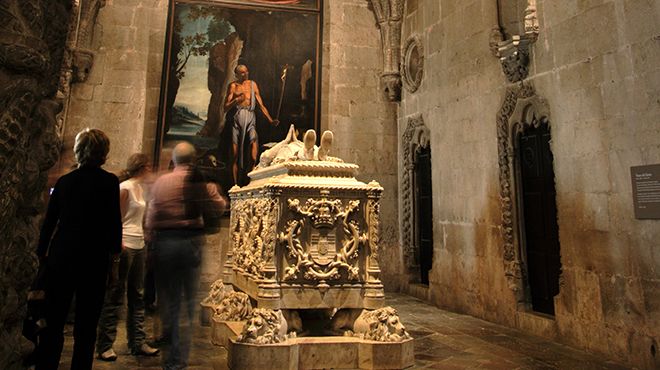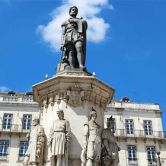Luís Vaz de Camões

Other
Luís de Camões (1524/25 - 1580) is a central figure in Portuguese Renaissance literature and a national symbol representing love, courage, and the search for an identity.
Author of epic work "The Lusiads", which celebrates Portugal’s maritime discoveries and the bravery of navigators, Camões also explored universal themes in his lyrical poetry, such as deep love and the pains of life.
His life was permeated with disagreements, adventures, and challenges. He was exiled several times and participated in several military expeditions that took him to Macau and India. He survived a shipwreck from which, it is said, he managed to save the manuscript of "The Lusiads". In addition to his epic poem, he produced lyrical poems and sonnets since immortalised in fados such as “Com Que Voz”, “Lianor”, “Dura Memória”, and “Erros Meus” performed by Amália Rodrigues, which echo the passion and melancholy that characterise Portuguese love, as well as “Endeixa”, sung by Ana Moura.
Luís de Camões captured the essence of love in all its intensity in his sonnets, comparing it to a fire that burns invisibly. As you explore Portugal, you will discover this same love in the details of its landscapes and in the hospitality of its people, where each moment and each landscape evokes a little of the poet’s passion.
The 10th June 1580 marked Camões’ death - a date that is now celebrated as Day of Portugal, Camões, and the Portuguese Communities.





 Explore
Explore 
 Remember and Share
Remember and Share 


